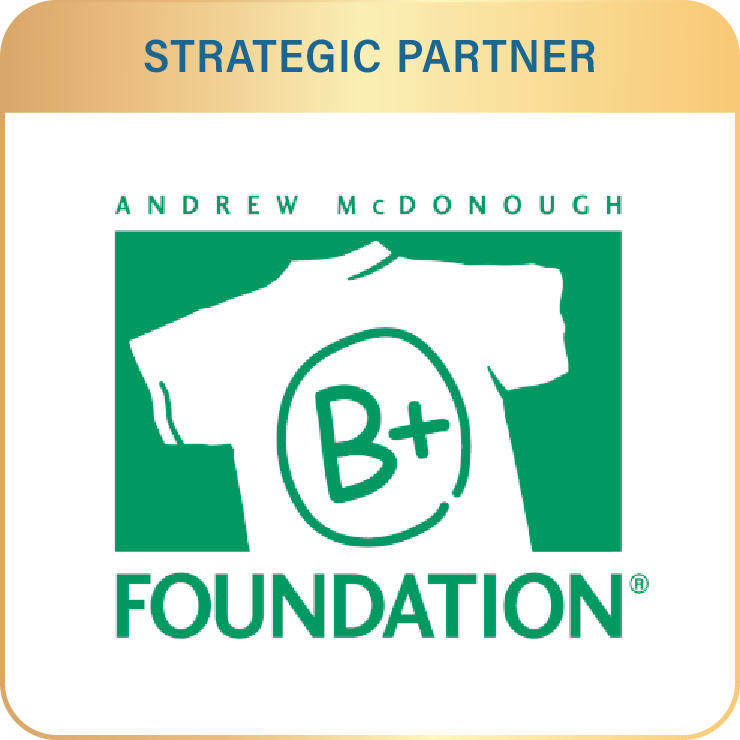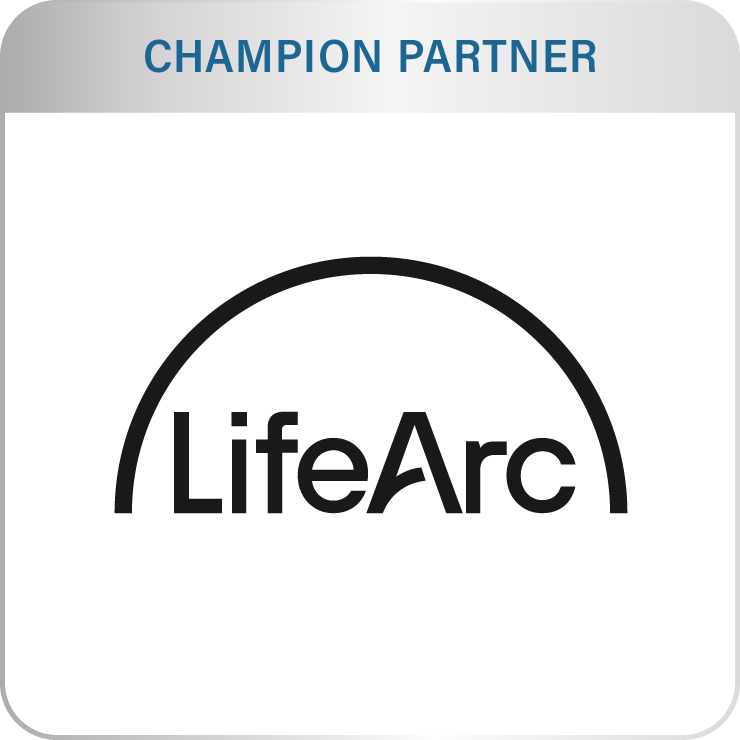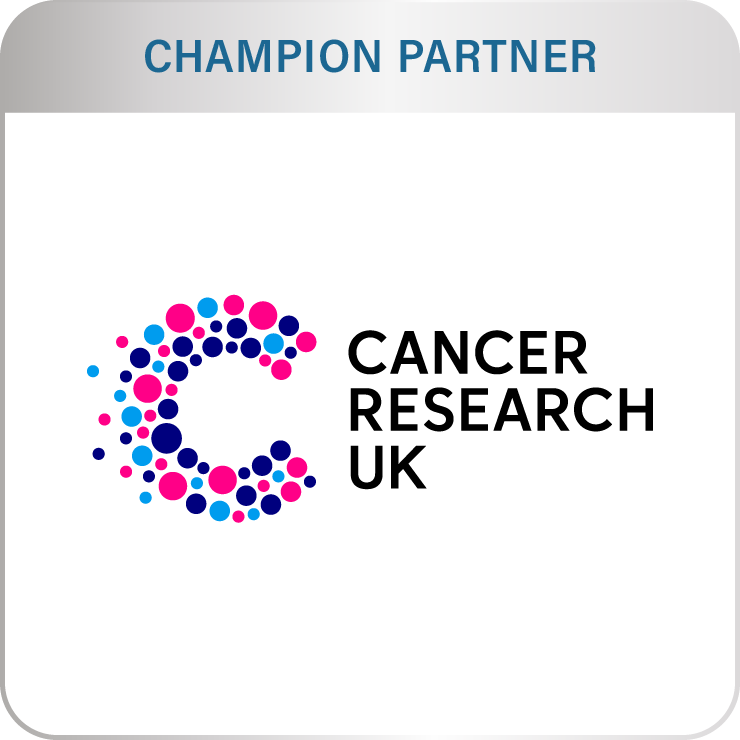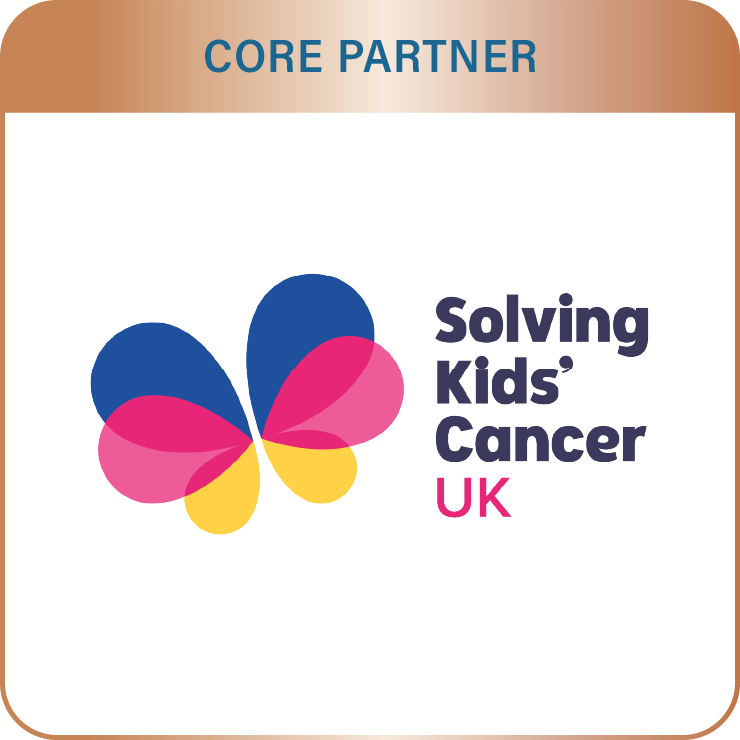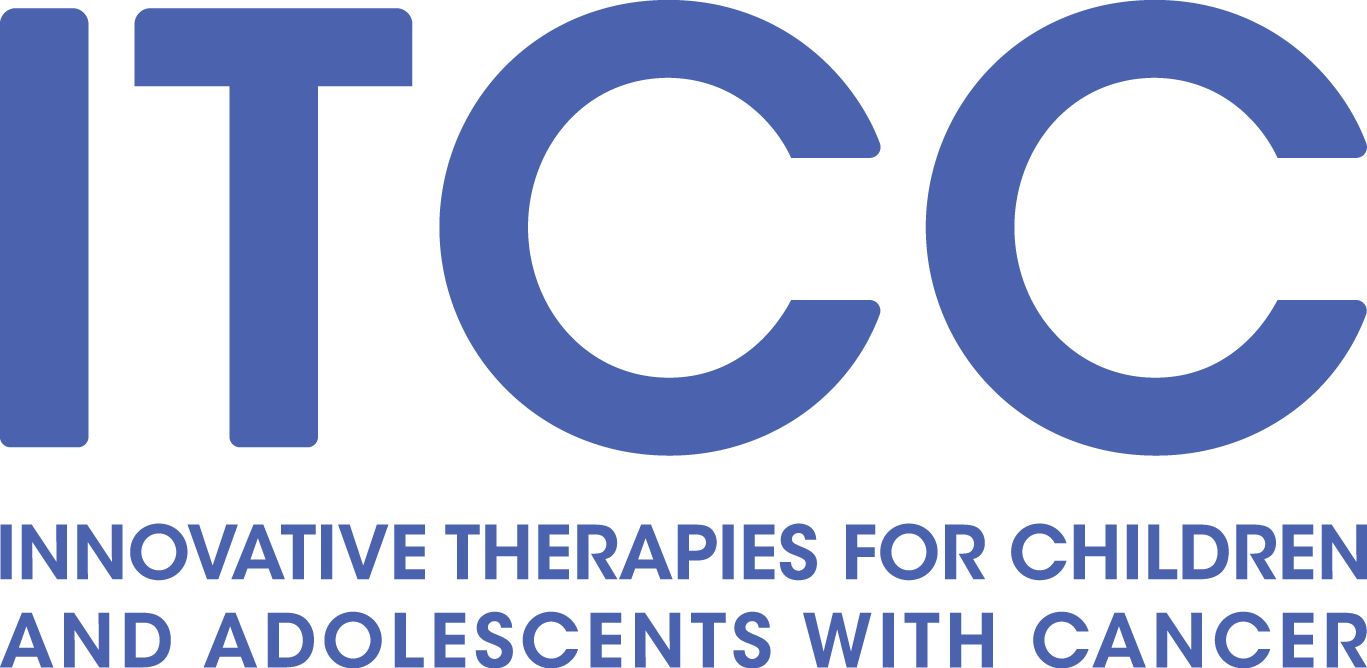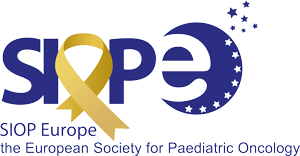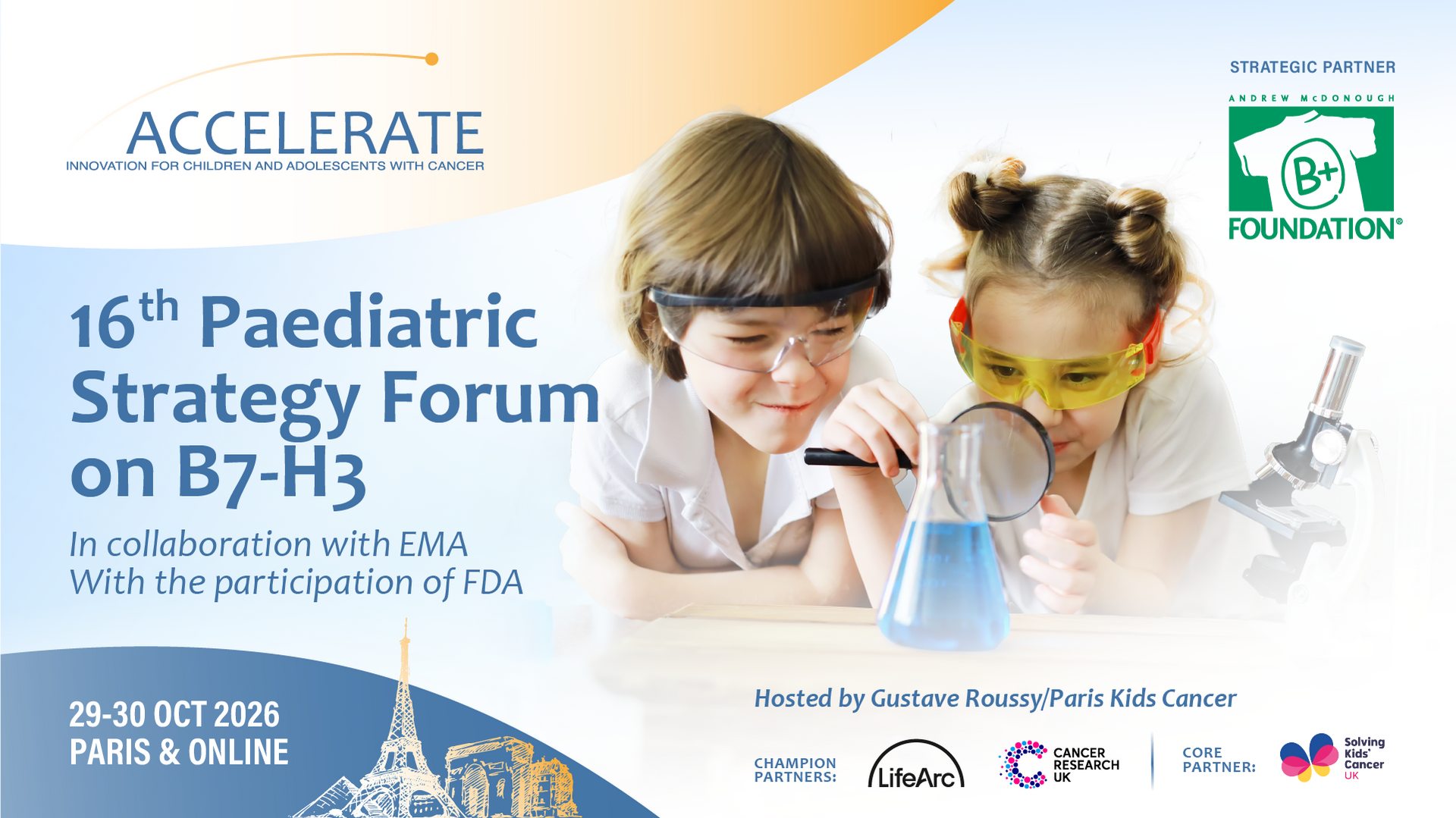
Background & Objectives
Paediatric Strategy Forums have been created to evaluate the current state of the science, facilitate dialogue, and provide an opportunity for constructive discussions between relevant stakeholders (patient advocates, clinicians, academics, biotechnology/pharmaceutical companies, and regulators) on specific topics in an open forum to assure development of medicines in the best interests of children and adolescents with cancer. The goal of these meetings is to share information, to facilitate the development of innovative medicines and ultimately their introduction into the standard-of-care of children with malignancies.
The scientific manuscripts of all previous ACCELERATE Paediatric Strategy Forum published in the European Journal of can be found here.
The Fifteenth Multi-Stakeholder Paediatric Strategy Forum is organised by ACCELERATE in collaboration with the European Medicines Agency (EMA) and with the participation of other regulatory agencies. The Strategy Forum will focus on Antibody Drugs Conjugates (ADCs) for the treatment of malignant solid tumours.
The field of development of ADCs for the treatment of cancer in adults is rapidly expanding and several ADCs have been already granted a marketing authorization worldwide for the treatment of several cancers, such as breast, cervical and ovarian cancers as well as lymphoma and leukemias. Few ADCs have been authorized for the treatment of leukemias and lymphomas in children and adolescents. Many different proteins are targeted. Different ADCs with different linker or payload are often developed to target the same protein at the cancer cell surface.
The US RACE for Children act requires paediatric evaluation of certain new molecularly targeted drugs and biologics which are intended for the treatment of adult cancers and directed at a molecular target substantially relevant to the growth or progression of a paediatric cancer, irrespective of the adult condition for which the product is being developed. In Europe, the ongoing revision of the Pharmaceutical Regulatory package introduces the drug mechanism of action (and no longer the adult condition) for paediatric development of a medicinal product.
Not all ADCs should be developed in paediatric oncology. There is an urgent need to set up and facilitate a science-based prioritization of ADC development to best address the unmet paediatric needs.
The Forum will define a strategy to facilitate prioritization of the development of ADCs for the treatment of malignant paediatric solid tumours, based on the biological relevance of the ADC targets and other factors such as toxicity and immunological properties.
Lessons from the development of ADCs in adult cancers and in paediatric leukemias and lymphomas will be shared and discussed. A brief discussion on the role of ADCs in paediatric CNS cancers will also take place. The development of radiopharmaceuticals will not be discussed.
The overarching goal is to formulate a consensus between all stakeholders on how best to develop ADCs in paediatric oncology.
Format
This forum will be held in person at the Hotel Clio in Denver Cherry Creek. All participants are strongly encouraged to attend in person. For attendees unable to travel or if travel restrictions prevent an in person event, a virtual option will be available.
Forum Output
Publication of a summary and manuscript addressing the challenges and documenting the conclusions of the meeting. Further specific meetings relating to areas which require more in-depth discussion may also be arranged.

